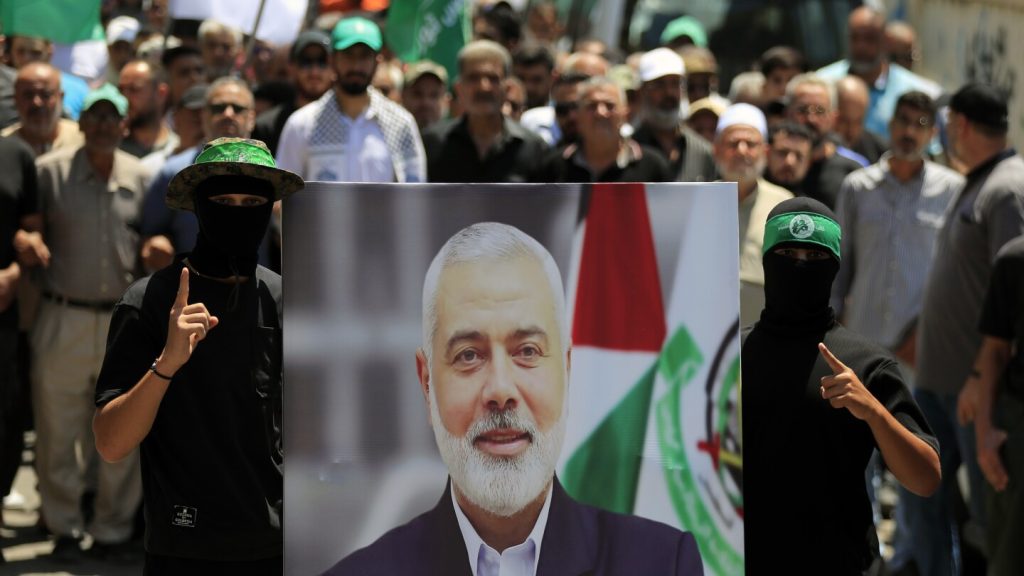In a recent turn of events, Israel is suspected of killing Hamas’ political leader in Tehran, a move that indicates an Israeli leader who is openly at odds with the Biden administration’s efforts to calm the region through diplomacy. The U.S. Secretary of State, Antony Blinken, expressed that Americans were not aware of or involved in the attack on Ismail Haniyeh, a key Hamas figure who was involved in mediation efforts to bring a cease-fire and release hostages in the Gaza war. The U.S. remains focused on achieving a cease-fire in the ongoing conflict in Gaza as a means to reduce tensions in the region.
The killing of Haniyeh and another suspected Israeli strike on a senior Hezbollah leader in Beirut have raised concerns about potential cycles of retaliation that could further escalate the situation. As Israel targets what it considers Iran’s “axis of terror,” the Biden administration’s hopes for restraining actions may be fading. Despite Biden’s support for Israel during the conflict, he has also backed efforts to secure a cease-fire and release of hostages, urging both sides to agree on a framework. Following Prime Minister Netanyahu’s recent visit to the U.S., questions have arisen about Israel’s additional conditions for any potential cease-fire agreements.
The timing of the attack on Haniyeh in Tehran, where he was attending the inauguration of Iran’s president, may have significant implications for regional stability. Iran is likely to view the strike as a direct challenge to its sovereignty and could respond accordingly. The attack on Haniyeh may have been intended to pressure Hamas into accepting a cease-fire deal, as Israel aims to weaken the Iran-aligned group in Gaza. There are concerns that the conflict could expand to include Lebanon, where Hezbollah poses a significant threat to Israel.
As tensions continue to rise in the region, the U.S. is working to prevent further escalation and find a peaceful resolution to the conflict. National security adviser John Kirby expressed concern about the recent strikes and their impact on regional stability. Despite the challenges, the U.S. believes that negotiations are still possible and a deal can be reached. Efforts are underway to manage the risks of escalation and prevent a larger conflict from erupting. The situation remains complex and delicate, requiring careful diplomatic efforts to prevent further violence.


